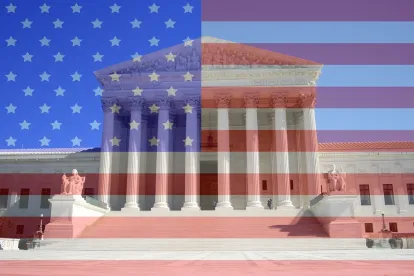In a unanimous decision authored by Justice Kavanaugh, the Supreme Court of the United States held that the term “full costs” in 17 USC § 505 of the Copyright Act has no special, expansive meaning, but is limited to the costs specified in the general costs statute codified at 28 USC §§ 1821 and 1920. Rimini Street Inc. v. Oracle USA Inc., Case No. 1625 (US Mar. 4. 2001) (Kavanaugh, Justice). As Kavanaugh explained, the addition of the adjective “full” to the term “costs” (in the Copyright Act) is not enough to conclude that Congress intended additional costs beyond those set forth in the general costs statute.
Oracle develops and licenses software programs that manage data and operations for businesses and nonprofit organizations, and also offers software maintenance services for its customers. Rimini Street sells third-party software maintenance services to Oracle customers, thereby competing with Oracle’s software maintenance services. To obtain Oracle’s software, Rimini used automated downloading tools and copied the software from Oracle’s website.
Oracle sued Rimini for copyright infringement as well as claims under the California Comprehensive Data Access and Fraud Act and the Nevada Computer Crimes Law. A jury found against Rimini on the claims and awarded Oracle $124 million in damages, including $12.8 million for litigation expenses such as expert witnesses, e-discovery and jury consulting. About $36 million of the award was attributable to damages for copyright infringement. Rimini appealed to the US Court of Appeals for the Ninth Circuit.
Addressing the issue of copyright infringement, the Ninth Circuit affirmed the district court’s finding that Rimini infringed Oracle’s copyright by copying its software. The Ninth Circuit rejected Rimini’s argument that the licenses held by Oracle licensees gave Rimini the right to copy the software under the license of one customer for work done for other customers.
Based on its reversal of the award on the non-copyright claims, the Ninth Circuit reduced the damage award by approximately $50 million, but determined the $12.8 million for additional expenses was still appropriate because § 505 of the Copyright Act permits the award of “full costs,” a term the Ninth Circuit found was not confined to the six categories of allowable costs identified in 28 USC §§ 1821 & 1920.
Petition for Certiorari and Opinion
The question addressed by the Supreme Court was whether the statutory language “full costs,” as used in the Copyright Act, authorizes a court to award litigation expenses beyond the six categories of costs specified by Congress in the general costs statute. The Copyright Act provides that a district court, in a copyright case, may allow the recovery of “full costs” by or against any party other than the United States or an officer thereof. In its decision, the Supreme Court concluded that the term “full” does not expand the recoverable costs beyond those specified in the general costs statute, §§ 1821 and 1920.
Under 28 USC § 1920, Congress specified six categories of litigation expenses that a federal court may award as costs:
- Fees of the clerk and marshal
- Fees for printed or electronically recorded transcripts necessarily obtained for use in the case
- Fees and disbursements for printing and witnesses
- Fees for exemplification and the costs of making copies of any materials where the copies are necessarily obtained for use in the case
- Docket fees under § 1923
- Compensation of court appointed experts; compensation of interpreters; and salaries, fees, expenses and costs of special interpretation services under § 1828
In addition, § 1821 provides reimbursement rates for witnesses’ per diem and mileage expenses.
The Supreme Court explained that its cases “establish a clear rule” that “[a] statute awarding ‘costs’ will not be construed as authorizing an award of litigation expenses beyond the six categories listed in §§ 1821 and 1920, absent an explicit statutory instruction to that effect.” The Court explained that the term “full” used before “costs” merely serves to mean the complete measure of costs available pursuant to the appropriate statutes and does not expand the available costs under § 505.
The Supreme Court rejected Oracle’s argument that English copyright statutes awarding “full costs” allowed the transfer of all expenses of litigation, beyond what was specified in any costs schedule, and that Congress necessarily imported that meaning of the term “full costs” into the Copyright Act in 1831, explaining that “courts should not undertake extensive historical excavation to determine the meaning of costs statutes.”





 />i
/>i

